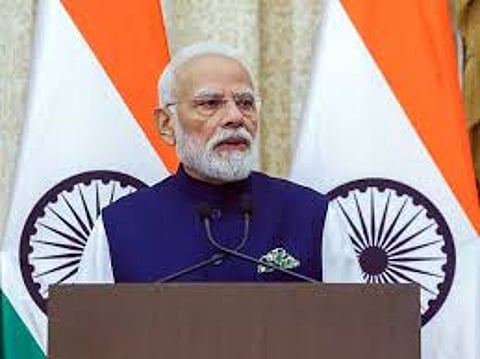

Prime Minister Narendra Modi on Friday underscored that mental health is a “fundamental part” of overall well-being, marking the observance of World Mental Health Day. He called for greater collective efforts to normalise conversations around mental health and acknowledged the contributions of those working to support emotional healing and happiness.
In a post shared on X, the Prime Minister wrote:
“World Mental Health Day serves as a powerful reminder that mental health is a fundamental part of our overall well-being. In a fast-paced world, this day underscores the importance of reflecting and extending compassion to others.”
He further urged citizens to foster open dialogue and supportive environments that promote psychological wellness, adding:
“Let us also work collectively to create environments where conversations around mental health become more mainstream. My compliments to all those working in this field and helping others heal and find happiness.”
World Mental Health Day, observed every year on October 10, was first established in 1992 by the World Federation for Mental Health (WFMH). The day is supported globally by the World Health Organization (WHO) to raise awareness and encourage action for mental well-being.
This year’s WHO campaign highlights the urgent need to support the mental health and psychosocial needs of people affected by humanitarian crises such as natural disasters, armed conflicts, and public health emergencies. These events often trigger widespread emotional distress — with one in five individuals likely to experience a mental health condition.
WHO emphasizes that supporting mental health in crisis situations is not only essential but life-saving, as it helps individuals cope, heal, recover, and rebuild — both personally and within their communities.
The organisation urges governments, healthcare providers, educators, and community groups to collaborate in addressing these challenges. By investing in evidence-based and community-driven mental health interventions, WHO notes, societies can meet immediate mental health needs, promote long-term recovery, and empower individuals and communities to thrive once again.
Also Read